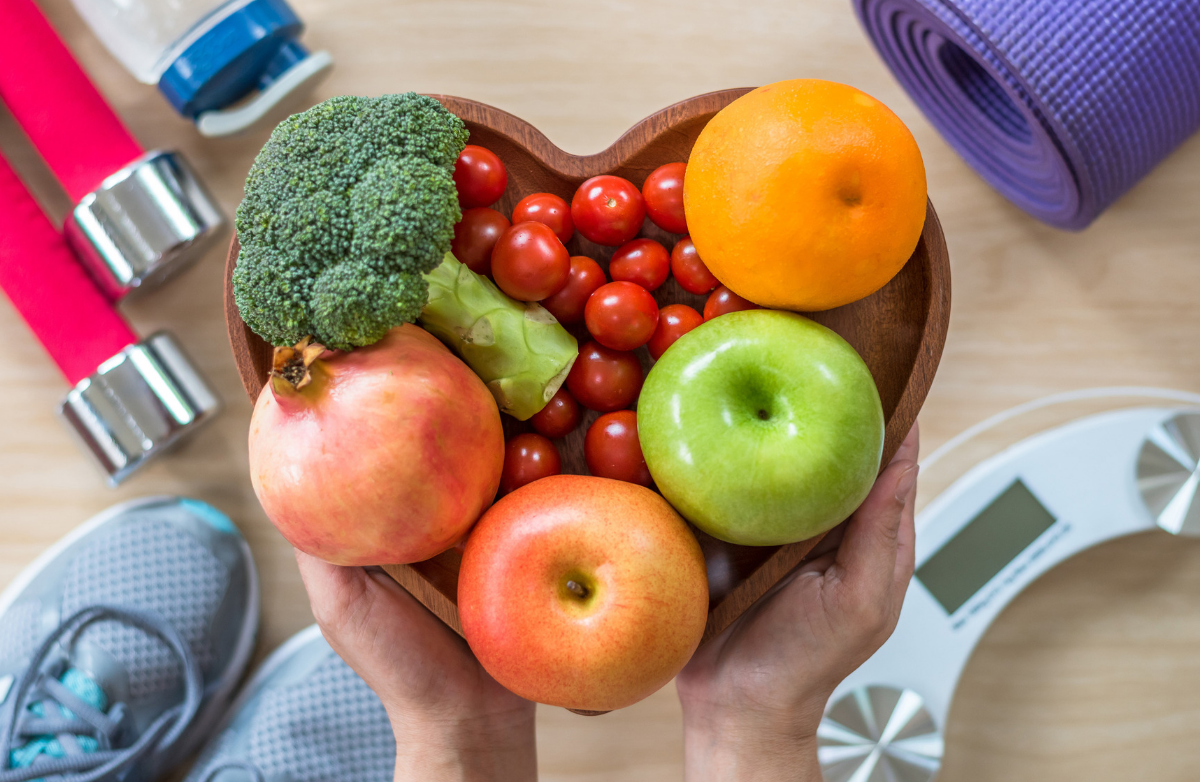
You've counted the calories and followed a meal plan. You've stood by the rules—
If you haven't thought about a long-term game plan, you're not alone. The dieting world often links "success" to a number on a scale and a size of a shirt, leaving you searching for the next step when you hit the finish line.
At first glance,
Not quite. While it's likely that a fad diet will help you lose weight, it's even more likely that it won't last.
Here's the problem: Trendy diets typically cause rapid weight loss in a short time frame by drastically cutting calories and eliminating major food groups. And while these diets tend to include positive behaviors like limiting added sugars and eating more veggies, those same behaviors are usually taken to the extreme.
When you're on a mission to make big moves, extreme rules might not even phase you. But before you continue the ride, take a step back and double check the hype. Restrictive diets can cause more harm than good, and often, the reasons aren't always obvious.
Why Fad Diets Fall Short for the Long-Term
One might say that drastic times call for drastic measures. But when it comes to the extreme nature of fad diets, the concept doesn't hold true. Starting a strict diet is a challenge for anyone, but sticking with them as a permanent solution is problematic and can backfire for a few destructive reasons.
1. Increases Risk for Caloric and Nutrient Deficiencies
When it comes to fad diets, this is perhaps the greatest concern of nutrition experts. "Our brains do not know the difference between dieting and actual starvation," explains Julie Lee, M.S., R.D., C.D.N.
The result? An endless pattern of weight cycling without lasting results.
Plus, since fad diets tend to restrict entire food groups, your nutritional intake is bound to suffer. This only increases the risk of nutritional deficiencies and imbalances, according to Lee. It might even work in the opposite direction and cause excess levels of certain nutrients, which could potentially heighten the risk of heart disease, kidney stones and, in extreme cases, nutrient toxicities.
2.
Fad diets can also shake up your relationship with eating. Remember, these diets tend to focus on strict rules—no if's, and's or but's. This can place a great deal of pressure on your food choices, especially if it seems like all the "cool kids" are getting in on the same plan. As a result, any transgression can lead to feelings of guilt and defeat, says Lee.
Kerry Clifford, M.S., R.D., L.D.N., also adds that fad diets can
It's a far cry from the practice of mindful eating, which is fueled by eating food for nourishment. "[Mindful eating is] primarily motivated by the desire to feel good—both physically and mentally—and have satisfaction in eating," Lee shares. "[And] while it does use gentle nutrition principles to help guide choices, it's flexible and allows for
Ultimately, when you've got boxes to check and lists to follow, eating becomes less about health and more about
3. Lowers Chances of Sustainability
A strict set of guidelines can also stand in between you and sustainable, long-lasting change. Fads don't account for moments when you cannot be in full control, such as on vacation or visiting a friend's home for dinner. While there are some exceptions, most fad diets don't offer you much space to practice sensible, mindful eating.
A lifestyle of healthy eating is the exact opposite. It's a style that works with your life. When you focus on healthy behaviors instead of a specific list of guidelines, you're more likely to find an eating style that allows for flexibility and satisfaction. "Truly attuned eating teaches us to eat in accordance with our body's needs, rather than a set of arbitrary rules," says Lee. "There's no wagon to fall off, so to speak, so changes tend to be more sustainable."
Diets That Aren't Long-Term Solutions
Fad diets may come and go, but one thing is for sure: They frequently share a common theme. Typically, this involves extreme restrictions, a set of rules and glorified promises of "life-changing" results. Often, diets are meant more as a starting line for weight loss—a kick-start, if you will. Their aim is to help you lose weight quickly, but many were never meant to be your forever solution to health. Before you jump into a 30-day deal
1. Ketogenic Diet
The ketogenic diet is a very low-carb, moderate protein and high-fat diet. Originally developed to help reduce the frequency of epileptic seizures, the diet encourages all types of fat, including saturated fat. In fact, up to 90 percent of daily calories of a
The diet cuts out added sugars. While this is a great goal to work toward on its face, to keep
The high intake of fat can be stressful
Due to its medical origins,
2. Whole30
Whole30 is a 30-day elimination diet that centers around whole foods. It's also marketed as a temporary diet, so it's already established that it's not meant for long-term use.
That's also part of the problem, though. With a 30-day end date, Whole30's "deadline" can create unnecessary pressure to meet strict requirements within that time frame. This pressure may also linger beyond the end date, whether or not one chooses to continue the diet.
And before you argue that eating real, whole food is a good thing (it is!), the issue here lies within the way Whole30 encourages change. "[Whole30 is] marketed as an elimination diet and for 'health'," Lee points out. In turn, it suggests that strict restrictions—rather than balance—are essential for health and wellness. Moreover, with such extreme restrictions, there are that many more opportunities to experience a guilt-ridden fall off the Whole30 wagon.
3. Juice Cleanse
Also known as a juice detox or simply "
At its core, there's nothing harmful about enjoying fruit or vegetable juice. But when most (or all) of your diet consists of juices, your nutritional health will be thrown for a loop.
Clifford's primary concern is that juice cleanses don't provide protein and fat, two essential
What's worse is that juicing removes the fiber-rich peel of fruits and veggies. Fiber, which is essential for controlling blood sugar, also increases satiety and keeps hunger at bay.
Clifford adds that it's also difficult to get enough calories through a juice cleanse. That, along with the lack of protein, can lead to weight loss due to the deterioration of muscle mass rather than the healthy fat loss you see with a
No matter how you look at it, restrictive diets can't teach us about balance or sustainability. They don't allow us to develop—and practice—a positive relationship with food. Furthermore, they can wreak havoc on our bodies, which will only increase the risk for health issues in the long run.
In the end, the "perfect diet" won't need a handbook or a strict set of rules. It won't even need a hashtag-friendly name or title. Instead, it will center around mindful behaviors and habits that offer nourishment and fuel—just as food should.













